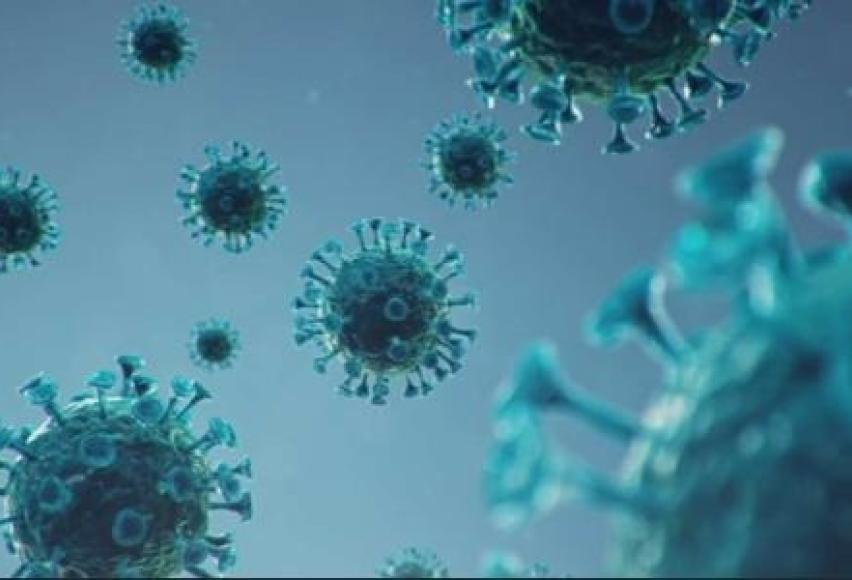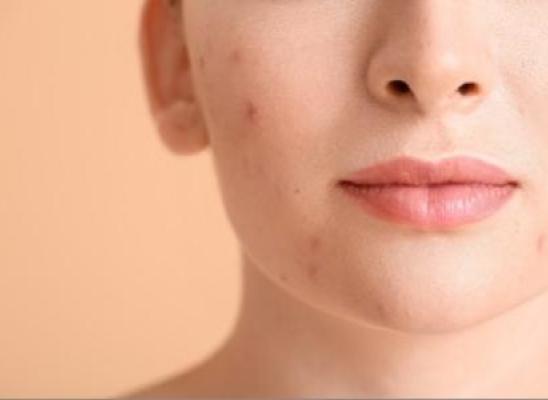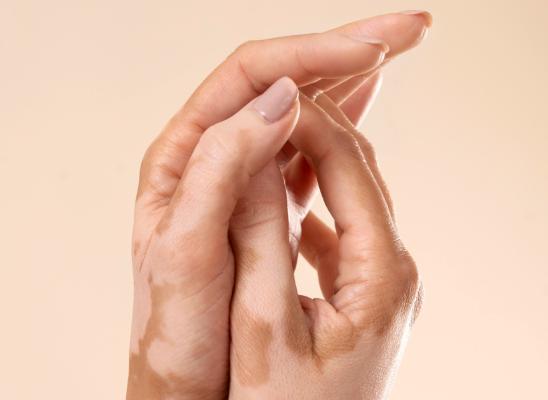Skin-picking and the Pandemic: New Insight into the Roles of Trauma and Dissociative Experiences

Online test
Find out the severity of your symptoms with this free online test
There’s no doubt that the Covid 19 pandemic has been traumatic for many people in so many ways. Seemingly overnight, our world changed. Our way of life changed. The world has seen a level of suffering and loss most of us have not experienced in our lifetimes. While some would argue otherwise, it is safe to say that the pandemic has been a traumatic event on a global scale. To say we were not emotionally prepared to cope with such an event would be an understatement.
With the pandemic, there has been increased attention to those who live with skin-picking and other Body-Focused Repetitive Behaviors (BFRBs), and concern for the effects that this prolonged stressor may have on their symptoms. Eighteen months out, data is sparse but early indicators are that the pandemic is affecting some people who live with skin-picking and other BFRBs. Others have not experienced adverse effects. With the pandemic still in full force, just how this trauma has affected people is still being explored. It will surely be some months, maybe years, before we know the full effects. In the meantime, researchers continue to explore mental health issues and to understand how the pandemic may be affecting people.
One of the areas that has gained attention is that of skin-picking behaviors and the roles of trauma and dissociative experiences. We know that there are two primary forms of skin-picking – focused and automatic. Automatic behaviors (sometimes referred to as “trance” or dissociative) are a common feature seen with people who have experienced trauma and is also experienced by some people who skin-pick. What exactly is that relationship and how has the pandemic affected this dynamic? Or has it affected it at all? A new study examines the dynamics of trauma, dissociation, and skin-picking in the context of the pandemic. The results might surprise you.
The Trauma-Dissociation-Skin Picking Connection
Traumatic life events have been linked to the development of a number of OCD-spectrum disorders including OCD, trichotillomania, and body dysmorphic disorder. Studies have also linked traumatic events, including early childhood trauma, to the development of skin picking. But, not all trauma results in the development of mental health issues. Evidence suggests that the potential for the development of a mental health disorder may depend on the type of trauma (e.g., emotional, physical, sexual) and that interpersonal trauma, primarily sexual abuse, may contribute to increased severity of symptoms.
For those with trauma-related disorders, it is relatively common to experience episodes of dissociation. Dissociation is essentially a mental process of separation or disconnection from your thoughts, feelings, memories, surroundings, actions, or identity. Many people with skin-picking disorder report experiencing episodes of dissociation, often referred to as “trances” in which they pick without awareness of their behavior. In fact, one-third of people with skin-picking report experiencing trance-like feelings during the act of picking. There is some thought that this “trance” behavior may serve as a mediator or link between the traumatic experience and skin picking.
The Study
Skin-picking is regarded as a maladaptive coping behavior. The development of skin-picking disorder has been linked to traumatic life events. Dissociative symptoms are reported by a significant number of people with skin-picking disorder. The purpose of the study was to explore whether the relationship between trauma and the automatic type of skin-picking is mediated by the frequency of dissociative episodes, and whether the pandemic conditions have changed this relationship in any way.
A mediating variable explains how or why there is a relationship between two variables. In this case, the variables are trauma and skin picking. The mediator is thought to be the experience of dissociation.
The study sample consisted of 594 adults, ages 18 to 60. Information about traumatic life events, dissociative experiences, and types of skin-picking (focused vs. automatic) was obtained using a series of self-report questionnaires.
Study results support the relationship between trauma, dissociation, and skin-picking. Dissociative experiences were found to partially mediate the link between traumatic events and both types of skin-picking, not just the automatic type. These results suggest that trauma may be an important factor in the development of skin-picking behavior and may play a role in dissociative experiences.
This finding might surprise you given the massive impact of the pandemic. Regarding the effects of the pandemic, comparisons of symptoms pre-pandemic and during the pandemic revealed no significant differences in either skin-picking or dissociative symptoms frequency. This finding is consistent with a recent study that found pandemic-related stress did not exaggerate skin-picking in a non-clinical sample. These findings are different from other findings that found increases in symptoms for people with skin-picking or hair pulling disorders. The study noted that the sample participants had access to work and social support despite the lockdown possibly mediating the effects of their situation. It is possible that there is a difference in pandemic impacts between clinical and non-clinical groups.
The Takeaway
So what do these findings mean for people with skin-picking disorder? Given that traumatic life events are associated with skin-picking disorders, a trauma-informed approach to therapy may be beneficial for some people. A trauma-informed approach assumes the presence of trauma history and reduces the risk of unintentionally retraumatizing the person. Working through this lens may allow the person to work through traumatic memories and emotions tied to traumatic experiences while also addressing the underlying factors associated with their skin-picking. Therapy should also focus on increasing individual distress tolerance and learning more adaptive ways to deal with difficult emotions.
References
1. Pathoulas, J. T., Olson, S. J., Idnani, A., Farah, R. S., Hordinsky, M. K., & Widge, A. S. (2021). Cross-sectional survey examining skin picking and hair pulling disorders during the COVID-19 pandemic. Journal of the American Academy of Dermatology, 84(3), 771–773. https://doi.org/10.1016/j.jaad.2020.11.011
2. Kłosowska, J., Antosz-Rekucka, R., Kałużna-Wielobób, A., & Prochwicz, K. (2021). Dissociative experiences mediate the relationship between traumatic life events and types of skin picking. Findings from non-clinical sample. Frontiers in Psychiatry, 12. doi:10.3389/fpsyt.2021.698543
3. Cromer, K. R., Schmidt, N. B., & Murphy, D. L. (2007). An investigation of traumatic life events and obsessive-compulsive disorder. Behaviour research and therapy, 45(7), 1683–1691. https://doi.org/10.1016/j.brat.2006.08.018
4. Mathews, C.A., Kaur, N. and Stein, M.B. (2008), Childhood trauma and obsessive-compulsive symptoms. Depress. Anxiety, 25: 742-751. https://doi.org/10.1002/da.20316
5. Breslau N. (2009). The epidemiology of trauma, PTSD, and other posttrauma disorders. Trauma, violence & abuse, 10(3), 198–210. https://doi.org/10.1177/1524838009334448
6. Wilhelm, S., Keuthen, N. J., Deckersbach, T., Engelhard, I. M., Forker, A. E., Baer, L., O'Sullivan, R. L., & Jenike, M. A. (1999). Self-injurious skin picking: clinical characteristics and comorbidity. The Journal of clinical psychiatry, 60(7), 454–459. https://doi.org/10.4088/jcp.v60n0707
7. Kłosowska, J., & Prochwicz, K. (2021). Cognitive reappraisal and types of skin picking – A longitudinal study with pre-pandemic and COVID-19 pandemic data. Journal of Obsessive-Compulsive and Related Disorders, 28, 100614. doi:10.1016/j.jocrd.2020.100614
Online test
Find out the severity of your symptoms with this free online test
Start your journey with SkinPick
Take control of your life and find freedom from skin picking through professional therapy and evidence-based behavioral techniques.
Start Now



